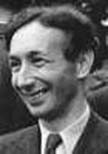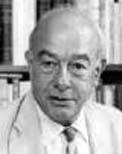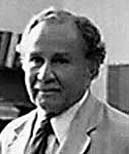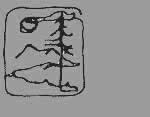 |
 |
 |
 |
 |
 |
 |
Language
and Mind: a
group contract |
 |
Evaluation
conferences will begin on June 4 and continue through June 10. All will
be held in Sem II E 4102. Please bring your self-evaluation and faculty
evaluation to the conference.
Language
and Mind: Classics in 20th-Century Philosophy
New Program, Not in printed catalog
Spring quarter 2003-04
Rather than spending the quarter entirely on 20th century philosophy, we will spend the first three weeks gaining background in historical work that lies behind 20th c. discussions in the philosophy of mind and language.
Our first reading will be Descartes'Meditations on First Philosophy, then we will turn to sections of Locke's Essay on Human Understanding, followed by Kant's Prolegomena to Any Future Metaphysics. After that we will adhere to the outline in the catalog copy I wrote up last year:
For two and a half centuries, a central debate in Western philosophy had been whether reason or empirical experience lay at the foundation of human knowledge. In the early 20th century, this dispute was transformed by a “linguistic turn” and language rather than mind became the central subject of discussion. For fifty years “logical positivism” (or “logical empiricism”) dominated the “analytic” wing of Western thought. Then, in mid-century, a profound shift occurred that undercut the very distinction between “rationalism” and “empiricism,” a shift that laid the groundwork for many currents in “post-modern” thought. Virtually every discipline in the humanities and social sciences has been deeply affected by this mid-century development.
Against the background of A. J. Ayer’s Language, Truth and Logic, a key formulation of “logical positivism,” we will read, closely and completely, three seminal mid-century works: Wittgenstein’s Philosophical Investigations , W.V.O Quine’s “ Two Dogmas of Empiricism ” and Wilfrid Sellars’ Empiricism and the Philosophy of Mind.
Each student will be responsible for a weekly formal presentation, and each will commit to a quarter-long independent study on problems of language and mind discussed either in contemporary philosophy or in earlier historical work. Evaluations will focus on the student’s presentations, contributions to seminar discussions and a paper resulting from independent study.
Credit will be awarded in: the philosophy of language and mind, the history of philosophy and for work accomplished independently.
Total: 16 credits.
Program is preparatory for careers and future studies in philosophy, the humanities and social sciences.